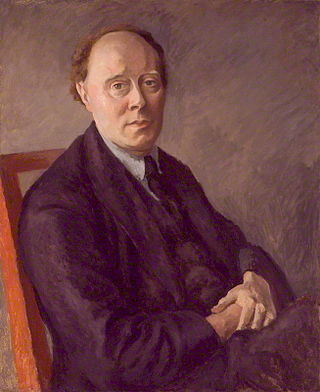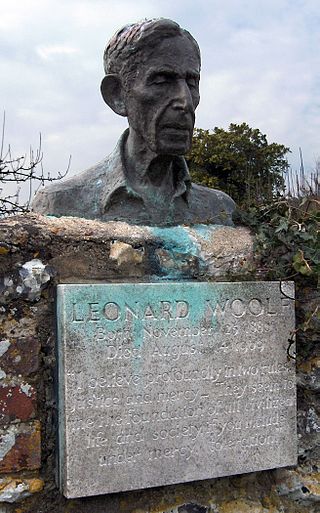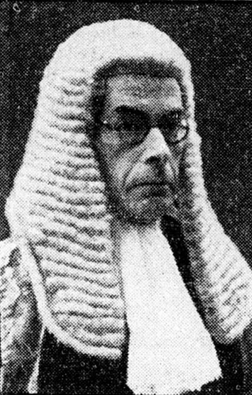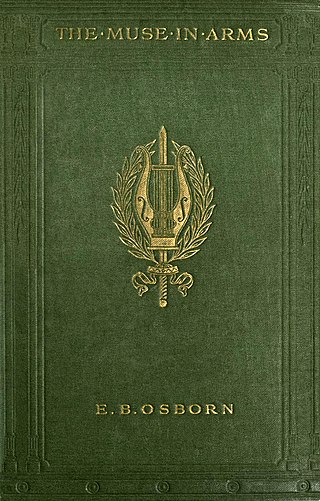
Arthur Lewis Jenkins (1892 - 1917) was a British soldier, pilot and war poet. [1] [2] [3] [4]

Arthur Lewis Jenkins (1892 - 1917) was a British soldier, pilot and war poet. [1] [2] [3] [4]
He was born 9 March 1892, in Barton Regis, near Bristol, Gloucestershire. His parents were Sir John Lewis Jenkins KCSI (1857 - 1912), a civil servant who became Vice President of the Indian Viceroy's Council, and Florence Mildred Trevor (1870–1956). He attended Packwood Haugh School, as did his four brothers. In 1905 he won a Foundation Scholarship to Marlborough College (1905-1911), where he was head boy, played rugby and was a member of the Officers' Training Corps (OTC). [5] In 1910 he won a classical scholarship to Balliol College, Oxford, matriculating in 1911 and taking a Second in Honour Moderations in 1913. [6] [7] The family lived in 'The Beehive', Littleham, Exmouth, Devon; on the death of his father they moved to live at Sussex House, Kew Road, Surrey. Lady Jenkins later moved to Kennington, Kent. [8]
Although probably destined to enter the Indian Civil Service he left Balliol to join the army. In September 1914 he was commissioned as Second-Lieutenant into the Duke of Cornwall's Light Infantry. He served in India, Aden, where he was in charge of a machine-gun section, and Egypt. His section was disbanded so in May 1917 he joined as a Lieutenant in the Royal Flying Corps, doing his training in Egypt. When he was posted back to England in August he was sent for training in night flying. He was killed while night flying on duty at Helperby, Yorkshire, on 31 December 1917. [9] [10]
He had poems published in the Marlborough school magazine and then in Punch and The Westminster Gazette. His recollections of campaigning in Aden are recorded in 'Arabia,' written just before he left Aden for Palestine; it was published in Punch. [11] His poem 'The Inn of the Sword', "A mysterious romantic ballad of a dark challenge taken up", [12] was published in the 1917 edition. [13] [14] His poem 'Happy Warriors' was published in The Westminster Gazette. [15]
After his death his collection of poems "Forlorn Adventurers and other poems” was published in 1918. [16] His poems were included in anthologies of World War I poems, such as 'The Spirit of Womanhood', 'Outposts' in "The Muse in Arms" (1917) and in "War Verse" (1918) [17] and "The Valiant Muse" (1936). [18] His poem 'Sending' was published in "The Children's Story of the War" (1918). [19]
Virginia Woolf reviewing his poems in The Times Literary Supplement wrote that he was "a poet and a sportsman who loved the wind and the sea, and would always take the fighting chance." [12] [20] The Western Mail reporting his death noted that "he, too, like the other gallant hearts that have gone before him, has found "a fuller life.”" [21]
In his poem 'Bondage' he wrote [22]
Oh, I am sick of ways and wars
And the homeless ends of the earth,
I would get back to the northern stars
And the land where I had birth, ….
The wine of war is bitter wine,
And I have drunk my fill;
My heart would seek its anodyne
In homely things and still….
Clear came the call; they leapt to arms and died,
As in old days the heroes prayed to do;
Great though our sorrow, greater yet our pride,
O, gallant hearts in you.
Surely they sleep content, our valiant dead,
Fallen untimely in the savage strife:
They have but followed whither duty led,
To find a fuller life.
Who, then, are we to grudge the bitter price
Of this our land inviolate through the years,
Or mar the splendour of their sacrifice
That is too high for tears....
God grant we fail not at the test—that when
We take, mayhap, our places in the fray,
Come life, come death, we quit ourselves like men,
The peers of such as they.
An aching glare, a heat that kills,
Skies hard and pitiless overhead,
And, ever mastering lesser ills,
Sad bugles keening comrades dead;
Fever and dust and smiting sun,
In sooth a land of little ease;
Yet now my service here is done
I think on other things than these.
Dawn on the desert's shortlived dew,
Blue shadows on the silver sand,
Grey shimmering mists that still renew
The magic of the hinterland;
Sunsets ablaze with crimson fire,
Pale moons like plates of beaten gold,
Soft nights that fevered limbs desire,
And stars whereto our stars are cold;
Sharp rattling fights at peep of day,
Machine-guns searching scrub and plain,
Red lances questing for the prey,
And shrapnel puffs that melt again;
Swift shifting stroke and counterstroke,
Advance unhurrying and sure,
Until the stubborn foeman broke—
These are the memories that endure.
Heigh-ho! I would not stay - and yet,
Now that the trooper's fairly in,
With vain unreasoning regret
I turn my journey to begin;
For through the haze of dust and heat
That veils the desert and the town,
Still glimmers something strange and sweet,
The afterglow of old renown.

He had a military funeral with the band of the East Surrey Regiment playing, [23] and is buried in Richmond Cemetery [24] [25] [26] next to his sister, Elinor May Jenkins (1893-1920), who was also a war poet. [27] [28] The inscription on his grave is "Per ardua ad astra".
He is commemorated on the memorials at the Marlborough College Memorial Hall, [29] Balliol College, [30] Packwood Haugh School, and St Anne's Church, Kew. [31]

Siegfried Loraine Sassoon was an English war poet, writer, and soldier. Decorated for bravery on the Western Front, he became one of the leading poets of the First World War. His poetry both described the horrors of the trenches and satirized the patriotic pretensions of those who, in Sassoon's view, were responsible for a jingoism-fuelled war. Sassoon became a focal point for dissent within the armed forces when he made a lone protest against the continuation of the war with his "Soldier's Declaration" of July 1917, which resulted in his being sent to the Craiglockhart War Hospital. During this period, Sassoon met and formed a friendship with Wilfred Owen, who was greatly influenced by him. Sassoon later won acclaim for his prose work, notably his three-volume, fictionalised autobiography, collectively known as the Sherston trilogy.

Philip Edward Thomas was a British writer of poetry and prose. He is sometimes considered a war poet, although few of his poems deal directly with his war experiences. He only started writing poetry at the age of 36, but by that time he had already been a prolific critic, biographer, nature writer and travel writer for two decades. In 1915, he enlisted in the British Army to fight in the First World War and was killed in action during the Battle of Arras in 1917, soon after he arrived in France.

Kew is a district in the London Borough of Richmond upon Thames. Its population at the 2011 census was 11,436. Kew is the location of the Royal Botanic Gardens, now a World Heritage Site, which includes Kew Palace. Kew is also the home of important historical documents such as Domesday Book, which is held at The National Archives.

Captain Charles Hamilton Sorley was a British Army officer and Scottish war poet who fought in the First World War. He was killed in action during the Battle of Loos in October 1915.

Arthur Clive Heward Bell was an English art critic, associated with formalism and the Bloomsbury Group. He developed the art theory known as significant form.

Leonard Sidney Woolf was a British political theorist, author, publisher, and civil servant. He was married to author Virginia Woolf. As a member of the Labour Party and the Fabian Society, Woolf was an avid publisher of his own work and his wife's novels. A writer himself, Woolf created nineteen individual works and wrote six autobiographies. Leonard and Virginia did not have any children.

Fredegond Cecily Shove was an English poet. Two collections of her poetry were published in her lifetime, and a small selection also appeared after her death.

John Beverley Nichols was an English writer, playwright and public speaker. He wrote more than 60 books and plays.

Arthur Housman was an American actor in films during both the silent film era and the Golden Age of Hollywood.
Theodore Percival Cameron Wilson, was an English poet and novelist of the First World War, best known for his poem Magpies in Picardy, published posthumously in 1919 by The Poetry Bookshop.

David Llewelyn Jenkins, Baron Jenkins was a British judge.
Arthur Blackburne Poynton was an English classical scholar. He was a Fellow and later Master of University College, Oxford.
Lieutenant Lionel Arthur Ashfield DFC was a World War I British flying ace credited with seven aerial victories.

The Muse in Arms is an anthology of British war poetry published in November 1917 during World War I. It consists of 131 poems by 52 contributors, with the poems divided into fourteen thematic sections. The poets were from all three branches of the armed services, land, sea and air, from a range of ranks and from many parts of the UK. Twenty of the poets who contributed to this volume died during the war. The editor was the journalist and author Edward Bolland Osborn (1867–1938), and the book was printed in London by the publishers John Murray. This anthology was one of several collections of war poetry published in the UK during the war. It "achieved large sales", and was reprinted in February 1918. It has been referenced in several analyses of First World War poetry and has been described as "the most celebrated collection of the war years".
Alexander Corry Vully de Candole, was a World War I poet.

Richmond Cemetery is a cemetery on Lower Grove Road in Richmond in the London Borough of Richmond upon Thames, England. It opened in 1786 on a plot of land granted by an Act of Parliament the previous year. The cemetery has been expanded several times and now occupies a 15-acre (6-hectare) site which, prior to the expansion of London, was a rural area of Surrey. It is bounded to the east by Richmond Park and to the north by East Sheen Cemetery, with which it is now contiguous and whose chapel is used for services by both cemeteries. Richmond cemetery originally contained two chapels—one Anglican and one Nonconformist—both built in the Gothic revival style, but both are now privately owned and the Nonconformist chapel today falls outside the cemetery walls after a redrawing of its boundaries.

Gerald Caldwell Siordet was an English poet and a 2nd Lieutenant in the Rifle Brigade 13th Battalion who died during World War I.
Frank Adam Conyers Baker, given name also as Francis, was an Anglo-Irish Royal Navy officer and first-class cricketer.

Second Lieutenant Bernard Pitt was a British teacher, army officer and poet. He attended Borough Road College from 1901 to 1903 to train as a teacher and remained at the institution to study for degrees in languages and literature. Pitt taught at the King's School in Kew, Sir Joseph Williamson's Mathematical School in Rochester, Kent, and Coopers' Company School in Bow, London. From 1912 he taught a degree-level course in English literature at the Working Men's College in St Pancras. Pitt began a study of Anglo-Saxon literature in 1914 but left this to join the British Army and fight in the First World War.
Elinor May Jenkins (1893–1920) was a British war poet.